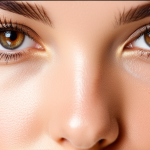Overview of UK Cosmetic Treatment Regulations for Pregnant Individuals
Navigating through UK cosmetic regulations can be challenging, especially for individuals who are expecting. The legal framework surrounding cosmetic treatments during pregnancy places a strong emphasis on safety and informed decision-making. Regulatory bodies in the UK, such as the Medicines and Healthcare products Regulatory Agency (MHRA), provide guidelines to ensure the well-being of both mother and baby.
Government recommendations underscore the importance of understanding proper pregnancy guidelines before considering any cosmetic procedure. Many treatments are not recommended due to potential risks, suggesting that pregnant individuals must prioritize essential health and safety guidelines. It’s vital to liaise with healthcare professionals who are not only certified but also experienced in dealing with pregnant clients.
In parallel : The Definitive Guide to Nutrition for Pregnant Vegans in the UK: Essential Tips for Peak Health
Before embarking on any treatment, expectant individuals should consult with certified practitioners who are well-versed in legal frameworks and safety protocols. This proactive approach not only keeps one well-informed but also ensures compliance with the UK cosmetic regulations designed to protect vulnerable groups. Hence, consulting with certified professionals becomes crucial, fostering a safer route through the myriad of beauty treatments available today.
Risks Associated with Cosmetic Treatments During Pregnancy
Navigating pregnancy risks associated with cosmetic treatments requires careful consideration. Many procedures pose potential dangers to both the mother and the fetus. Certain treatments with heightened risks include chemical peels and laser therapy. Such treatments may harm the skin’s sensitivity, which is amplified during pregnancy. Health considerations become paramount as the mother’s body undergoes hormonal changes, affecting the efficacy and safety of these procedures.
This might interest you : Must-Know Blood Tests for First-Time Mothers in the UK: Your Essential Antenatal Guide
It’s crucial to assess the pregnancy risks linked to various cosmetic treatments. For instance, the use of Botulinum toxin is discouraged due to insufficient data on its impact during pregnancy. Likewise, exposure to harmful chemicals in certain hair dyes may pose a risk, making natural products a preferable choice.
Monitoring and managing health conditions is vital. Conditions like gestational hypertension or diabetes should be stabilized prior to any cosmetic treatment. Consulting with healthcare providers ensures personalized advice, enhancing treatment safety. This professional insight aligns treatment plans with pregnancy stages, promoting better health.
Overall, understanding and mitigating cosmetic treatment safety concerns can help expectant mothers make wiser decisions, ultimately protecting their and their baby’s well-being.
Safe Alternatives to Cosmetic Treatments During Pregnancy
Navigating beauty regimes during pregnancy requires careful assessment of pregnancy-friendly treatments. Fortunately, there are several safe beauty options that expectant individuals can explore. Non-invasive procedures, like hydrating facials and gentle exfoliation, are excellent ways to maintain skin health without compromising safety. Such treatments focus on enhancing natural beauty without introducing harmful chemicals or intense procedures.
Exploring non-invasive procedures, one finds that options like microcurrent facials and LED light therapy stand out. These techniques are gentle and offer rejuvenating benefits without the associated risks of traditional cosmetic treatments. They work by stimulating collagen production and improving circulation, which can be beneficial during pregnancy.
The importance of using natural and organic products cannot be overstated during pregnancy. Products free from parabens, phthalates, and synthetic fragrances are ideal choices. This ensures that no harmful substances are absorbed through the skin, preserving the health of both mother and baby.
To ensure the best outcome, it’s always advisable to consult with certified practitioners about the suitability of any treatment. They can provide tailored advice in alignment with the expectant mother’s needs, ensuring that beauty routines remain safe and effective.
Expert Opinions on Cosmetic Treatments During Pregnancy
Exploring expert testimonials can guide pregnant individuals through their cosmetic treatment choices. Here, we gather opinions from leading professionals in dermatology, obstetrics, and aesthetics to provide well-rounded insights into cosmetic treatments during pregnancy.
Insights from Dermatologists
Dermatologists highlight the importance of opting for pregnancy-friendly products. They often recommend non-invasive treatments like hydrating masks and ensuring that all skincare ingredients are safe for both mother and baby. Many stress avoiding treatments with harsh chemicals due to elevated skin sensitivity during pregnancy.
Opinions from OB-GYNs
OB-GYNs primarily focus on how treatments might affect the fetus. They usually advise postponing non-essential procedures until after childbirth. Their healthcare recommendations often include collaborating with dermatologists to evaluate procedures that may pose risks at different gestational stages.
Feedback from Aesthetic Practitioners
Aesthetic practitioners often share that early consultations with certified professionals ensure expectant mothers fully understand treatment implications. They frequently draw from credible studies highlighting safe practices, helping to shape specific advice tailored to the needs of pregnant clients.
Consultation with medical professionals allows pregnant individuals to make informed decisions, ensuring the timing and type of treatments align with healthcare recommendations.
Making Informed Decisions Regarding Cosmetic Treatments
Navigating decision-making during pregnancy requires attention to several key factors. Pregnant individuals must consider the risks versus benefits of cosmetic treatments. The complexity of weighing these factors necessitates credible patient education. Engaging with certified practitioners aids in providing robust evaluations based on current health status and treatment impacts. Professionals help weigh potential outcomes, empowering individuals to make informed choices about their beauty services.
Understanding one’s health and exploring environmental factors help align choices with pregnancy safety protocols. Some risks remain undefined, making the importance of informed decision-making paramount. Whether contemplating minor procedures or routine beauty enhancements, the necessity for a consultative approach cannot be overstated.
Stay informed by utilizing resources like healthcare guidance, credible scientific articles, and professional opinions. They offer patient education pathways to explore cosmetic options while nurturing health. Discussing treatment details with certified experts underpins a safe journey through beauty enhancement during pregnancy, enhancing confidence in one’s choices.
Ultimately, thoughtful decision-making combines tailored advice and enriched knowledge, ensuring pregnant individuals consider every vital safety component to protect themselves and their unborn child.






